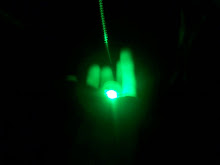
Indeed, as in Mary Shelley's Frankenstein, there are in this world much and many exorbitantly and dreary cases of melancholy and deplorable, intensely regrettable sadness in this broken world. Such as this bear. It, by its mien, its appearance, its countenance, could in the essence of its inner disposition be likened to that of the creature in Mary Shelley's well known classic. The creature, created by a man, and shunned by mankind for his antipathy which was bestowed and endowed upon him by his sinful creator. The creature longs to feel love and emotion from any soul other than his own whom he has learned so much about in his short life. But by the grotesque composure of his countenance and stature, he is expounded and expelled. There are doubtless many such "creatures" in our world. Not congruent, perhaps. By no means congruent, but similar in many ways are the creatures of our world. Men, women, children, young men and women in their youthful times who must learn the extent and throe of the perpetual and harsh reality of life. Life, in its essence, as it exists today, is filled with sorrow. There is joy. Much and exorbitant joy is to be had in one's life; however, there is painful, odious sorrow to augment such times. But it is not all bad. I lament thee sorrow, but I do not destroy it nor say that the world is better without it. For at times, the house of mourning is greatly superior to the house of mirth. For it is sorrow which inspires kindness, and compassion in our world. Thus is the great antipathy of pain, and yet also the great redemption of it--love. Shelley has not presented her readers with merely a thriller or a horror story, although her tale is both of these things, in part. She has produced a classic, in lamentation of the deplorably morose condition of woe upon the earth.

No comments:
Post a Comment